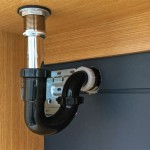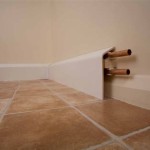Do You Need A Permit To Add Shower An Existing Bathroom?
Identifying whether or not a permit is required for adding a shower to an existing bathroom is crucial as it ensures adherence to building codes and regulations. Failure to obtain the necessary permits may result in fines, legal issues, and potential safety hazards. This article will delve into the essential aspects of determining permit requirements, providing a comprehensive guide to navigate the process.
1. Local Building Codes and Regulations
Permit requirements vary based on local building codes and regulations. It is essential to contact the local building department or municipality to inquire about the specific requirements in your area. These regulations may outline the scope of work that requires permits, including structural modifications, plumbing, and electrical changes.
2. Scope of the Project
The extent of the shower addition project will influence the permit requirements. Minor changes, such as replacing a bathtub with a shower unit, may not necessitate a permit. However, more extensive renovations involving structural alterations, plumbing expansions, or electrical upgrades typically require permits.
3. Structural Modifications
Adding a shower may involve structural modifications, such as relocating walls, altering floorplans, or creating new openings. These changes often require permits to ensure the structural integrity and safety of the building. A licensed contractor can assess the project's impact on the structure and determine the need for permits.
4. Plumbing and Electrical Work
Installing a shower unit requires plumbing and electrical modifications. Permits are typically required for any plumbing or electrical work to ensure compliance with safety standards. A licensed plumber or electrician can assist in determining the permit requirements and performing the necessary installations.
5. Inspection Process
After obtaining the necessary permits, the project will undergo inspections throughout its duration. These inspections verify that the work complies with building codes and regulations. Failure to pass inspections may result in delays or the need for additional modifications.
6. Consequences of Not Obtaining a Permit
Undertaking a shower addition without the required permits can have severe consequences. It may lead to fines, legal issues, or even the inability to sell the property in the future. Moreover, unpermitted work may compromise the safety and structural integrity of the building.
Conclusion
Determining permit requirements for adding a shower to an existing bathroom is crucial for ensuring compliance with building codes and regulations. By understanding the essential aspects outlined above, homeowners can navigate the permit process effectively. Consulting with local authorities, licensed contractors, and understanding the scope of the project will provide a clear understanding of permit requirements and guide a successful shower addition project.

Do You Need Permits To Remodel A Bathroom Sweeten Com

Permits For Bathroom Remodeling Projects Complete Guide

Do You Need Permits To Remodel A Bathroom

Permits For Bathroom Remodeling Projects Complete Guide
Do You Need A Permit To Remodel Your Bathroom Quora

Do You Need A Permit To Renovate Bathroom Zzone Homes Inc

Permits For Bathroom Remodeling Projects Complete Guide

Permits For Bathroom Remodeling Projects Complete Guide

Do You Need Permits For Bathroom Remodel What To Know In 2024 Badeloft

Do You Need Permits For Bathroom Remodel What To Know In 2024 Badeloft
Related Posts







